Specialists on APEC Lesson Study:
What is going on in each economy?
Max Stephens, University of Melbourne, Australia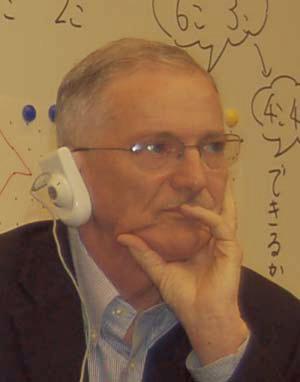
Elementary schools in several Australian States, for example Victoria and New South Wales, are exploring Lesson Study as a means of teacher professional development and school improvement. At present, the main focus appears to be on shared planning of lessons on particular topics, with some emphasis on the research phase. Changing school culture regarding the importance of Lesson Study for systematic whole school improvement and a stronger focus on quality of students' learning are challenges in this early phase. At present, Lesson Study is focussed on particular mathematical topics. Schools need assistance to engage more deeply in the research phase, and to see Lesson Study as part of an ongoing cycle of improvement in teaching and student learning.
Peter Gould, Ministry of Education, New South Wales, Australia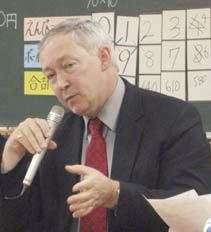
Currently, lesson study is carried out in a number of schools as a mode of professional learning in Australia. Teachers collaboratively plan a lesson, teach the lesson and review the lesson before teaching the lesson to a different class. However, local lesson study currently has no direct impact on the curriculum. Australia is in the process of developing a national curriculum and is looking towards opportunities for larger public lesson studies.
Madihah Khalid, Universiti Brunei Darussalam, Brunei Darussalam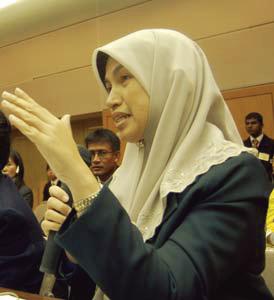
At the moment there are two main groups that are involved in Lesson Study at Universiti Brunei Darussalam and our group is one of them. Our group is made of me and three other colleagues from the University. We are supported by the University research grant, which among others is used to buy equipments like tape and DVD recorders. After a few hiccups during the first few months, we have until now conducted 'lesson study' at two government schools and expect more schools to implement 'lesson study' in future. The Ministry of Education is full of support for lesson study and sends teachers to be involved in workshops on lesson study held at the University. The lesson studies conducted is in tandem with the format of the APEC project.
Francisco Cerda Bonomo, St. Thomas University, Chile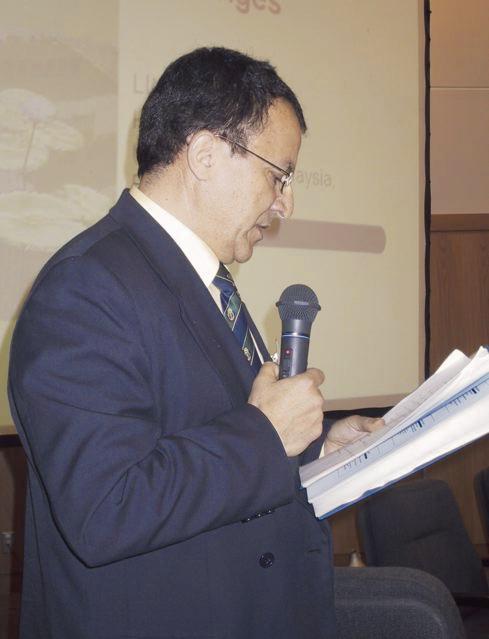
During two years he has represented Chile in the Lesson Study Project on behalf of Ministry of Education. We began the project on elementary schools with a problem solving strategy focused on mathematical thinking and math communication. Now, as coordinator of Math line of pre-service elementary teachers, we have the responsibility in the prospective teachers formation in math and didactic of mathematics. The Lesson Study methodology is one of the preferred we consider in the training of future teachers.
Arturo Mena Lorca, Pontificia Universidad Catolica de Valparaiso, Chile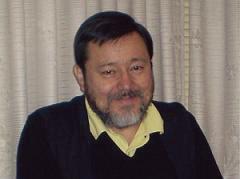
Lesson Study movement in Chile started with an agreement between the Ministers of
Education of Japan and of Chile. Over a period of three years, academic staff from a
dozen universities involved in in-service teachers training travelled to Japan to learn about
the Japanese school system. After coming back, Lesson Study has become the main
strategy, in a joint effort of these universities and the Ministry in continued education of
Mathematics teachers.
At our university, we are involved both in the practical and in some theoretical aspects of
the subject. We have introduced Lesson Study to in-service teachers and to Mathematics
teaching students. We are also working in Lesson Study with leader teachers from around
the country ('teachers of teachers'): the collaborative work that Lesson Study provides is
starting to allow teachers from many places to learn both the subjects and methodology. Opening classes to the external
analysis is a major issue, but the perspective of teachers becoming researchers of their own practice and sharing their findings
is a quite worthwhile challenge.
Grecia Galvez, Felix Klein Group, Universidad de Santiago de Chile, Chile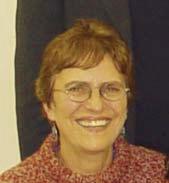
Lesson Study was known in Chile after a Project of Improvement for the Teaching of
Mathematics with Technical Assistance of Japan. In this project, which began in November 2005,
participated the Ministry of Education and academicians forming teachers of Primary Education
in eleven universities across the country. These academicians have participated in internships in
Japan, organized by the University of Tsukuba and later, they have developed different activities
to spread the strategy of Lesson Study. On the other hand, a team of professionals of the Ministry
of Education is implementing an experience of Lesson Study in Primary School in 18 communes
of the country. A first experience was performed in a fourth primary year and later on, a public
lesson was carried out with the assistance of 50 teachers, which now are spreading the experience
in their communes.
Grecia Galvez participated in 2006 in the first year of a collaborative study on mathematics education in different cultures, in
the context of the Cooperative Programs among the APEC Member Economies. She presented a comparison between Lesson
Study and the Strategy LEM, developed in Chile to Support Schools in the Mathematics Curriculum Implementation.
Shangzhi Wang, Capital Normal University, People’s Republic of China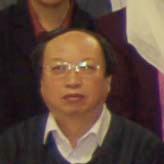
He has been engaging in curriculum development and implementation. In China, there are various kinds of lesson study for introducing and developing new teaching approaches. Open-ended approach was introduced in later 1980s. Competition style lesson study is also well known.
CHENG Chun Chor Litwin, Hong Kong Institute of Education, Hong Kong, China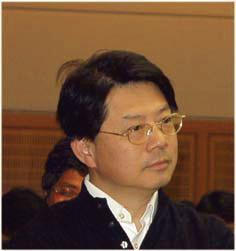
Lesson study has been used very frequently in Hong Kong for improving teaching in mathematics.
However, the most important component of mathematics teaching is good mathematics content,
without good content, lesson study could not improve any classroom teaching. This lesson study
is conducted in two primary schools in Hong Kong. The challenges of this lesson study are to
locate good teaching points in learning fractions multiplication and division through conceptual
understanding rather than rote operation.
The teaching is at a primary 4 classroom, usually multiplication and division of fraction is taught
at primary 5. Taking an investigative approach, children understand the concept of fraction
multiplication and division by repeated subtraction (same denominator) and extend the
understanding to different denominators.
Schools taken part in lesson study: Tai Kwok Tsui Catholic Primary School (Hoi Fan Road) and Baptist (STW) Lui Ming
Choi Primary School.
Marsigit, The State University of Yogyakarta, Indonesia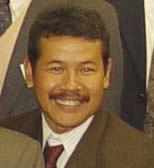
Starting in 1999, under cooperation between Government of Indonesia and JICA-Japan, three universities UPI Bandung, UNY Yogyakarta and UM Malang carried out project called IMSTEP-JICA for pursuing good primary and secondary practice of mathematics teaching through Lesson Study. The specific objectives of activities were: to develop instrument and equipment for teaching learning process, to develop teaching method and model for teaching learning process, to develop teaching material for teaching learning process, and to develop teaching evaluation for teaching learning process. Temporary results of Lesson Studies activities indicated that there were improvements in teaching learning practice of primary and secondary mathematics together with the innovations in approaches and media of learning to bring good results for students. Starting in 2005 up to present, the extension of the project resulting Lesson Study activities through the schema of SISTTEM, stand for Strengthening In-Service Teacher Training of Mathematics and Science Education at Junior Secondary Level, in which its aim were to develop the model of in-service teacher training primarily through Teacher Club activities, to encourage teacher professional development in the target province; and to improve the level of student learning ability in mathematics. Monitoring and results of activities are still in progress.
Masami Isoda, University of Tsukuba, Japan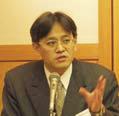
The lesson study was originated in the Attached Elementary School, University of Tsukuba in 1870’s. One of the largest movements of lesson study was early 20th century which enhanced activities such as problem-posing on daily context. History of lesson study is well written in the book; Japanese Lesson Study in Mathematics, World Scientific; Singapore (Isoda, M. et al.: 2007). Theories and teaching approaches of Japanese mathematics education have been developed through the lesson studies and shared a number of teachers?Ejournals and books. Problem solving approaches have developed before WW II. On this tradition, the open-ended approach was re-developed in 1970s. The approaches were spread into whole Japan in 1980s and were fed back into USA.
Shizumi Simizu, University of Tsukuba, Japan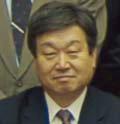
Japan Society of Mathematical Education established in 1919 has been leading lesson study and has supported curriculum reforms. After WW II, Ministry of Education reforms its national curriculum standards almost every ten years. In 2000, the result of OECD-PISA was the top. Through some influences from bubble economy in 1990s, it reduced 15 % teaching time of mathematics and reduced 30 % content. Its influence has been appeared on the result of PISA in the year 2003 and 2006. Now, we succeeded to roll back teaching time and content, and developed new curriculum for the next 10 years through considering the necessary competencies for the knowledge based society and sustainable development, which aims for mathematical activities such as developing mathematics, mathematical argumentation and using it in life.
Kazuyoshi Ohkubo, Hokkaido University of Education, Japan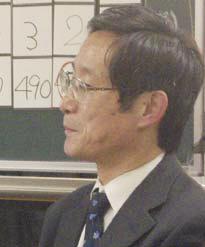
We established the Practice Study Group of Mathematics Education in elementary school about 15
years ago in order to aim at the improvement of classes and to raise each other's abilities focusing
on the young teachers in Sapporo City, Japan.
We organize meetings about once in a month, and about four open classes per year by member
teachers are performed.
Teachers of our group visit the school, observe each other’s classes, and discuss freely on the
classes in order to raise the teacher’s ability.
In December 2006, APEC conference “Collaborative Studies on Innovations for Teaching and
Learning Mathematics in Different Cultures (II) ?Lesson Study focusing on Mathematics
Thinking??Ewas held in Sapporo and two teachers in our group gave open class to specialists from
APEC economies, and Specialists exchanged their ideas on developing mathematical thinking of students in the classroom.
Minoru Ohtani, Kanazawa University, Japan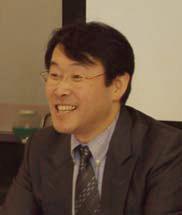
Last December, specialists of the APEC-TSUKUBA Lesson Study Conference visited Kanazawa and observed lessons of elementary and secondary mathematics. It was a wonderful opportunity for us to have productive discussion with distinguished specialists from around the world. Every elementary and secondary teacher in Japan is engaged in Lesson Study as an opportunity for professional development. I do hope Lesson Study will be developed in each economy as school based practice among the community of teachers.
Mangoo Park, Seoul National University of Education, Seoul, Republic of Korea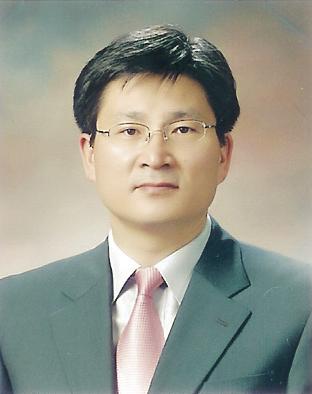
A systematic lesson study is new in Korea. An informal way of lesson study has long been in Korea. Observing a lesson and discussions on the lesson is a normal procedure. Recently, each office of education emphasizes the importance of lessons in school education. Most of them are running supporting groups and on-line supporting centers for improving teachers?Elessons. A more systematic approach is just starting among the site schools that train student teachers for in-service teachers. A unique initiation is the professor demonstrative lesson, which con! sists of before-discussion, observing lesson, after-discussion, and lecturing to teachers and parents. Some researchers suggest a more systematic analysis of lessons, but the real meaning of lesson study is still in an experimental stage.
Inchul Jung, Chonnam National University, Republic of Korea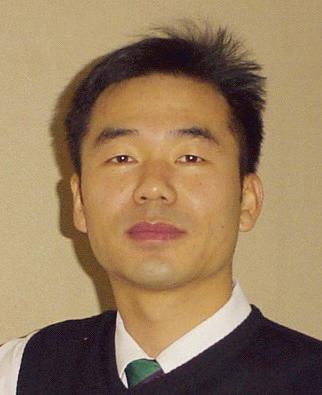
There are several things that make researchers and teachers in Korea think hard about lesson study. Especially elementary school teachers show strong interests about the philosophy of lesson study project, where many countries are deeply involved for better mathematics education in their own countries. In Korea, mathematics education is being swayed very much by entering good institute wherever they are, i.e., students have to go through competition with test scores simply for the better opportunity to be educated. Maybe that's why we desperately need the big idea of lesson study into Korea. We all would like to make mathematics education successful in Korea with the core of lesson study.
Lim Chap Sam, Universiti Sains Malaysia, Malaysia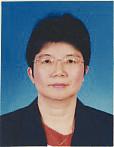
She and her PhD student, Mr Chiew Chin Mon initiated the Lesson study project in two Malaysian secondary schools in 2004. The mathematics teacher participants espoused positive feedback that the lesson study process had enhanced their content and pedagogical knowledge besides promoting reflective practice. Since then, the lesson study teams have expanded to include four more secondary schools (that promote the use of GSP) and ten primary schools (that promote mathematical thinking), as well as three groups of pre-service mathematics teachers. Several constraints and challenges faced include time constraints, teachers?Ecommitment and school administrators?Esupport.
Cheah Ui-Hock, RECSAM, Malaysia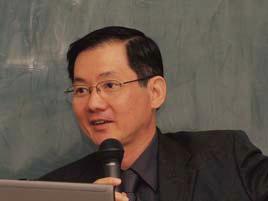
A pilot project on Lesson Study has been initiated in Penang, Malaysia this year. The project involving six partner schools of RECSAM (Regional Centre for Education in Science and Mathematics) began in January and aims to deal with two main challenges facing primary school mathematics: (1) enhancing professional teacher development, and (2) improving mathematics lessons by focusing on mathematical thinking. Although the teachers initially were anxious about being observed by their peers, initial findings show that the teachers found Lesson Study to be a very useful and novel way to try out and incorporate new ideas in the classroom. The teachers further commented that Lesson Study shows a lot of promise as a way to improve teachers?Eknowledge and classroom instruction.
Marcela Santillan Nieto, Ministry of Education, Mexico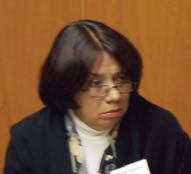
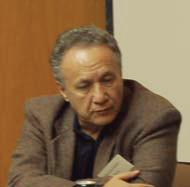
Tenoch Cedillo Avalos, Ministry of Education, Mexico


The Mexican Ministry of Education, through the General Direction of Higher Education for Teacher Training, has begun a four year program aimed at elementary and secondary mathematics Teacher Educators. That program was inspired in the Japanese Lesson Study in Mathematics; its main goal is to improve the quality of mathematics education that future teachers receive. The program was launched in February, 2008 with 160 teacher educators who work in ninety Normal Schools spread out all over the country. The teacher educators, accompanied by mathematicians and researchers form a Professional Community of Practice that meets together every three months. The main responsibility of that community consists on analyzing selected curricular topics of the school curriculum within the framework provided by their underlying mathematical and pedagogical knowledge; the final goal is to produce lesson plans. That lesson plans are tested in elementary schools classrooms by future teachers.The practice carried out by the future teachers is videotaped and then thoroughly reviewed by the Professional Community of Practice. This process is recurrently applied till the community approves a lesson plan. The sessions of the Professional Community of Practice are videotaped and edited to be published through the TV channel of the Ministry of Education.
Monica Mayumi Miyagui Miyagui, Ministry of Education, Peru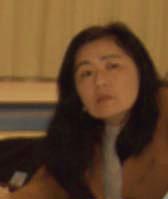
Given the low results in national assessments in mathematics certain educational needs have been prioritized by Peru. Among these is the improvement of logical thinking capabilities in mathematics, in children 1 and 2 grade of primary education. Therefore, it becomes necessary to draw up a Pedagogical proposal that allows teachers reflect on their teaching practice and improve their intervention skills to develop collaborative study sessions focusing on those processes as well as communication mathematical thinking, and it’s development of capabilities that enable students to communicate with mathematical language, according to their level of development the result of their mental processes, such as the establishment of spatial relationships, and numerical causal involved in the development of capabilities for solving everyday problems which have a mathematical content. We believe that what is important in this component is the capability for oral and / or written expression, as well as graphic and symbolic representations, involving processes for recording data, exploration, connection and understanding of mathematical ideas. The Project will be implemented as a Pilot in 4 regions of Peru: Huanuco, Huancavelica, Ayacucho and Apurimac.
Soledad Ulep, University of Philippines, Philippines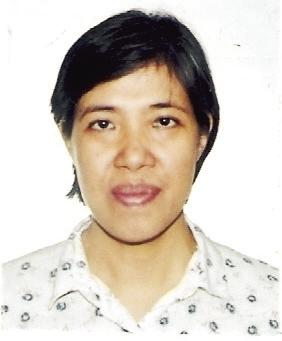
In mathematics education, lesson study was first introduced in the Philippines in April 2006. A
group consisting of 4 grade 8 mathematics teachers and the department head of a school was
formed to demonstrate how lesson study could be used to enable them to adapt in their own
classes good teaching practices. These practices were modeled in a teacher training program
conducted by the University of the Philippines National Institute for Science and Mathematics
Education Development (UPNISMED) in which the teachers participated. There are now 14
lesson study groups in 2 elementary and 2 secondary schools in 2 cities. In one school, there is a
group for each grade level and lesson study has replaced the school’s monthly in-service teacher
training. A total of 10 and 4 staff members of UPNISMED’s Mathematics and Audio-visual
Groups, respectively and about 60 teachers are involved.
Through lesson study, the teachers encounter valuable and new experiences like collaboratively developing lessons to teach
mathematics through problem solving. Formulating open-ended questions and anticipating various student responses deepen
their mathematical understanding. But there are also challenges like sustaining the teachers?Einvolvement commitment and
ensuring that they use good teaching practices amidst competing priorities and assessment demands.
YEAP Ban Har, National Institute of Education, Singapore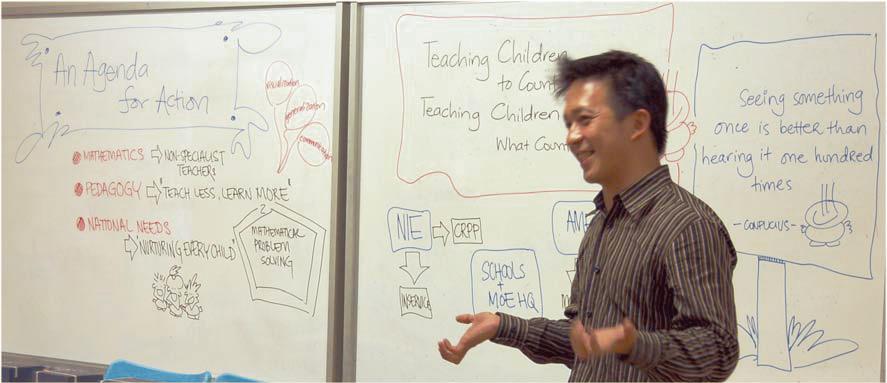
Lesson study is new in Singapore. National Institute of Education, the sole teacher training institution in Singapore, spearheads the use of lesson study in mathematics. Yeap Ban Har conducts an in-service course for teachers using lesson study in primary mathematics teaching. Christine Lee has organized several workshops for school leaders and teachers on lesson study by international experts. Several schools have embarked on using lesson study to improve teaching and learning of mathematics. Lesson study has a strong potential to link theory and practice. As it is new in Singapore, the culture of planning and observing lessons collaboratively is not yet common in Singapore. Six lesson study teams participated in the first in-service course in which each team were guided to complete a lesson study cycle in primary mathematics. There is also a research project on using the whole-school approach lesson study. Several schools, primary and secondary, are also involved in using lesson study in various subjects, including mathematics. It can be said that lesson study is in its infancy stage in Singapore and there has been various efforts to use it at the school level as well as to conduct research on it. A symposium on lesson study in mathematics was organized for Singapore teachers in May 2008.
Su-Chun Lin, Dung-Men Primary School, Chinese Taipei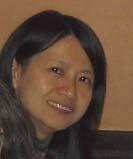
On the influence of APEC lesson study project in mathematics, Chinese Taipei proposed lesson study project in English.
Maitree Inprasitha, Khon Kaen University, Thailand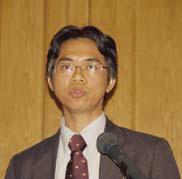
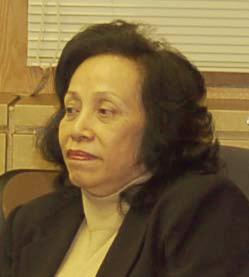
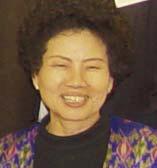
Suladda LOIPHA, Khon Kaen University, Thailand
Auijit Pattanajak, Khon Kaen University, Thailand



CRME had a contract with the Office of the Basic Education Commission, The Ministry of Education to searching a model for improving the classroom in the primary and the lower secondary level in the school. Four schools in Khon Kaen were selected to be subject. The instruments included the Lesson Study and Open Approach for collecting data. She was a coach for the schools Project for advising and helping base on the purpose of the study. After a year, something new happened with the teachers and the students especially the way of teaching and learning in the classrooms, such as the group of teachers paid attention to prepare their lesson before the school year and the students worked hard and dedicated more time to solve problems and could tell their process of problem solving.
Akihiko Takahashi, DePaul University, United States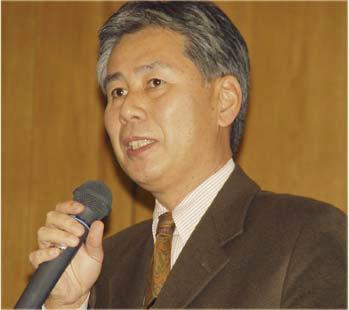
The Chicago Lesson Study Group was launched in November 2002 with volunteer school administrators and classroom teachers from Chicago metropolitan schools. After five years of conducting cross-school lesson study, several members expressed interest in recruiting their colleagues to start lesson study groups at their own schools. In order for the members to expand their group to a school-wide lesson study, it is crucial for them not only to develop their ownability to practice lesson study but also to support their colleagues. In order to support the members1 next step, the group started another layer of training forthem to be able to lead their own lesson study group.
Patsy Wang-Iverson, Gabriella and Paul Rosenbaum Foundation, United States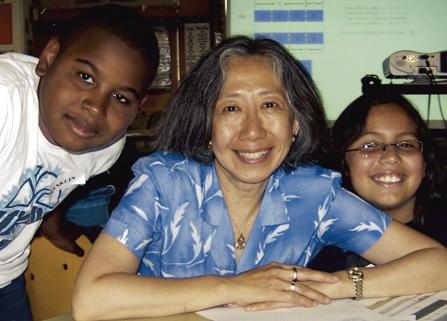
Paterson School No. 2, an urban school in New Jersey, pioneered lesson study in the U.S. in 1999. Since then districts, schools, and teacher teams across the country have embarked upon the journey to deepen their understanding of student thinking and learning through lesson study. As part of the APEC lesson study project, Wang-Iverson, since 2007, has worked with teams of teachers from two schools, a middle school in New Jersey, and an elementary school in Washington, DC, to help them deepen their own mathematics content knowledge; lesson study is most effective when teachers have a deep understanding of the content they teach.. During kyozaikenkyu, the teachers studied various treatments of the topic selected, starting with their district texts and including the Singapore Primary Mathematics (U.S. edition) textbooks and Parker & Baldridge’s Elementary Mathematics for Teachers. Through lesson study, teachers are developing their skills in “assessment for learning?Eand are working on “letting their students teach them.?E To spread lesson study to more schools and districts, Wang-Iverson partnered with the Alice Gill of the American Federation of Teachers to introduce the practice to teams from across the U.S.: California, Chicago, Colorado, Florida, New York, and Texas.
Makoto Yoshida, William Paterson University, United States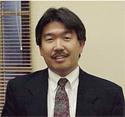
I have been helping teachers, schools, and school districts to conduct effective lesson study in the New Jersey, New York, Connecticut, and Pennsylvania area since 1999. One thing I often think about when I am working with teachers is how to help them to recognize the difficulty of planning and implementing lessons that improve students?Emathematical thinking, learning, and understanding of concepts. I believe that this realization is very important in order for them to acquire a desire for improving content knowledge and instruction. To help teachers to develop such a realization, I believe the following points need to be improved:
- Increase the number of occasions for teachers to observe and discuss research lessons by developing a lesson study network.
- Nurture in the teachers the capability to sustain lesson study activities regardless of changes in administration or educational policy.
- Learn to conduct focused and quality discussions about research lessons.
- Nurture leaders in the lesson study community who can contribute to improving the quality of lesson study activities.
Tran Vui, Hue University of Education, Vietnam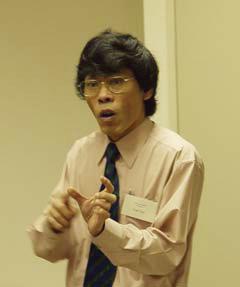
In Hue, we have been engaging in lesson study in these three years.